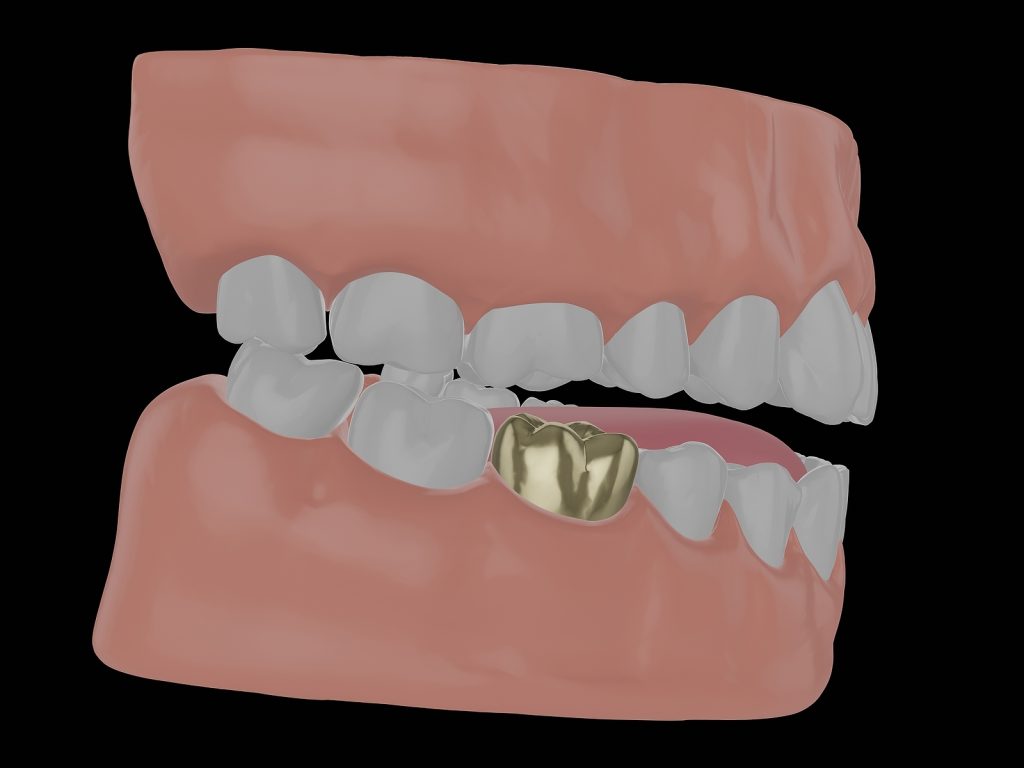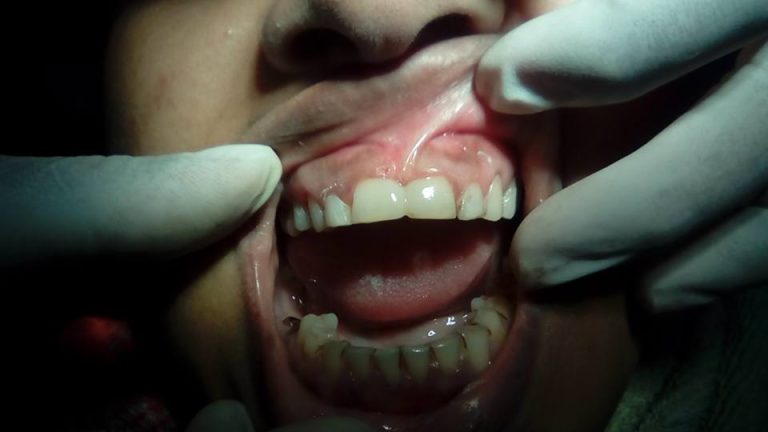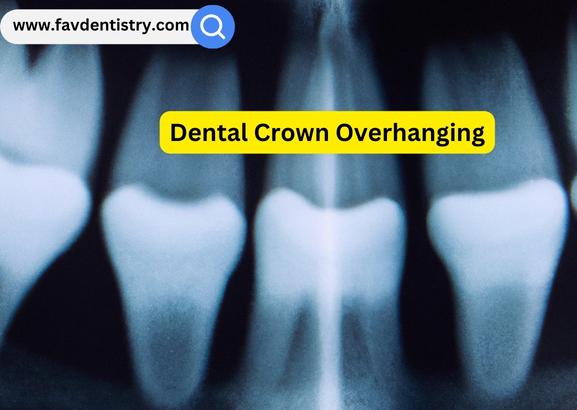Last Updated on 3 weeks by DR. ALBIN SIPES
Dental crowns are a familiar procedure. They are also one of the most durable, with a lifespan of five to fifteen years. However, there are a few factors that can affect how long your dental crown will last.
If you’ve ever had a dental crown, you know they’re not cheap. So how much time does this last? The good news is that with proper care, most crowns can last between 5 and 15 years.
That said, there are a few things that can shorten their lifespan, such as: • Grinding or clenching your teeth (this puts extra stress on the crown and can cause it to crack or chip) • Not brushing and flossing regularly (this leads to plaque buildup around the crown, which can eventually lead to decay)
• Eating hard foods (such as ice or candy) or using your teeth as tools (such as opening a bottle with them) If you take care of your crowns and avoid these habits, they should last for many years. But if you do have a problem with one, don’t wait too long to see your dentist – the sooner you get it fixed, the less likely it is to cause further damage.

Credit: www.hovedentalclinic.co.uk
Is a Crown Needs to Be Replaced?
A crown also called a cap, is a type of dental restoration that completely covers the tooth above the gum line. A crown can also be placed on top of an implant to provide a natural-looking replacement for a missing tooth.
There are several reasons why you might need to have a crown replaced. The most common reason is due to wear and tear. Over time, your teeth can become chipped or cracked, which can cause the crown to become loose.
If the crown becomes too loose, it will eventually fall off entirely. Another reason you might need to replace your crown is if the underlying tooth begins to decay. This can happen even if you take good care of your teeth and see your dentist regularly for checkups and cleanings.
Decay can occur under the Crown if there is any gap between the edge of the Crown and the tooth itself where bacteria can enter and cause decay. If Decay occurs under a Crown, it will oftentimes lead to an abscess (a pus-filled pocket at the base of the tooth) which can be extremely painful as well as damaging to your overall oral health if left untreated. In some cases, an abscess can even lead to death!
If you think you might need a new crown, be sure to schedule an appointment with your dentist right away!
Can Crowns Last a Lifetime?
Crowns can last a lifetime with proper care and maintenance, but it is important to keep in mind that no dental restoration is permanent and can last forever. The lifespan of a crown can vary depending on several factors, such as the materials used, the position of the tooth in the mouth, the occlusion (the way the upper and lower teeth bite together), and the individual’s oral hygiene habits.
Typically, dental crowns made of metal alloys, such as gold, can last the longest (15 to 30 years or more) while those made of porcelain or resin can last between 5 and 15 years. It is important to have regular dental check-ups to monitor the condition of the crown and to address any potential issues in a timely manner.
Good oral hygiene, such as brushing twice a day and flossing daily, can help extend the lifespan of a crown, as well as avoid behaviors that can damage the crown or the surrounding teeth, such as using your teeth to open packages or biting on hard objects.
What is the Life Expectancy of a Dental Crown?
The life expectancy of a dental crown can vary depending on several factors, including the material used, the location of the tooth in the mouth, the patient’s oral hygiene habits, and the amount of stress placed on the crown. On average, the lifespan of a dental crown can range from 5 to 15 years for porcelain or resin crowns and 15 to 30 years or more for metal (e.g., gold) crowns.
However, it is important to keep in mind that no dental restoration is permanent and will last forever. Regular dental check-ups and good oral hygiene practices, such as brushing twice a day and flossing daily, can help prolong the life of a dental crown. If any problems or issues arise with the crown, it is important to address them promptly to ensure the longevity of the restoration and to maintain good oral health.
How long do dental crowns last?
How Long Do Crowns Last on Front Teeth?
Crowns are an important part of dental care. They can protect your teeth from damage and help to improve your smile. But how long do crowns last on front teeth?
The answer depends on a few factors, including the type of crown, the material it’s made from, and how well you take care of it. Here’s what you need to know about the lifespan of a crown on a front tooth. Type of Crown: Porcelain or ceramic crowns tend to last longer than those made from other materials like metal or resin.
That’s because they’re more resistant to wear and tear. Material: The type of material used in your crown can also affect its longevity. For example, gold crowns are known for their durability, while porcelain ones may chip or crack over time.
Care: Finally, how well you take care of your crowned tooth will also determine how long the crown lasts. Be sure to brush and floss regularly, and see your dentist for regular checkups so they can catch any problems early on.
How Long time Does a Root Canal Last With a Crown?
A root canal involves removing the damaged tissue from inside the tooth, then cleaning and sealing it. A root canal can last a lifetime with proper care.
However, if you do not have a crown placed over the tooth after the root canal, there is a higher chance that the tooth will eventually need to be replaced.
How Long Do Crowns Last on Molar Teeth?
The lifespan of a crown on a molar tooth can vary, but on average it can last between 5 to 15 years for porcelain or resin crowns and 15 to 30 years or more for metal (e.g., gold) crowns. Molars are subjected to more chewing force than other teeth, so it’s important to choose a material that is durable enough to withstand the extra stress. Metal crowns are typically more durable and can last longer in comparison to porcelain or resin crowns.
However, the longevity of a crown on a molar tooth can also depend on several other factors, such as the patient’s oral hygiene habits, the occlusion (the way the upper and lower teeth bite together), and the overall health of the patient’s mouth. It is important to have regular dental check-ups to monitor the condition of the crown and to address any potential issues in a timely manner. Good oral hygiene practices, such as brushing twice a day and flossing
How Long Do Crowns Last on Back Teeth?
Crowns are one of the most popular dental procedures. They are also one of the most effective ways to protect your teeth from further damage. But how long do crowns last on back teeth?
On average, a crown on a back tooth can last anywhere from 5 to 15 years or longer. However, with proper care and maintenance, it’s possible for a crown to last even longer, up to 20 years or more.
To ensure the longevity of your crown, it’s important to maintain good oral hygiene practices, such as brushing twice a day, flossing daily, and visiting your dentist for regular checkups and cleanings. Additionally, it’s important to avoid biting on hard or crunchy foods and to protect the crown from damage due to grinding or clenching. If you experience any problems with your crown, such as pain or sensitivity, be sure to contact your dentist right away to prevent further damage.
How Strong are Crowns on Front Teeth?
Crowns on front teeth tend to be more cosmetic in nature and therefore, are typically made of materials that are aesthetically pleasing but not as durable as materials used for back teeth. Front teeth are also subjected to less stress and force during biting and chewing compared to back teeth, so they don’t need to be as strong.
However, the strength of a front tooth crown can vary depending on the material used. Porcelain or ceramic crowns tend to be less strong compared to metal or zirconia crowns, but they provide better esthetics. On the other hand, metal or zirconia crowns are stronger and more durable, but they may not match the color of your natural teeth as well as porcelain or ceramic crowns.
Regardless of the material used, a properly made and well-fitted crown can be expected to last many years and provide good function and appearance. Good oral hygiene practices and regular dental check-ups can help extend the lifespan of a crown and maintain its strength and stability.
How Long Does a Temporary Crown Last
If you have a tooth that requires a crown, your dentist will likely recommend a temporary crown. A temporary crown is made of either plastic or metal, and it is placed over the tooth to protect it while the permanent crown is being made. So, how long does a temporary crown last?
On average, a temporary crown can last anywhere from one to three months. However, there are several factors that can affect how long your particular temporary crown will last. For example, if you have a habit of clenching or grinding your teeth, this can put extra wear and tear on the temporary crown and cause it to come off sooner.
Additionally, if you eat hard or sticky foods, this can also cause the temporary crown to come off prematurely. It’s important to take care of your temporary crown just as you would your natural teeth. Be sure to brush twice daily and floss regularly.
And if you do eat anything hard or sticky, be sure to brush afterward. If you take good care of your temp Crown chances are it will last until your permanent one is ready!
Conclusion
How long do they last? The answer may surprise you.
Most dental crowns are made from porcelain or ceramic, which are both very strong and durable materials. With proper care, your crown should last for many years. In fact, many people never need to replace their dental crowns at all.
However, there are a few factors that can affect the longevity of your dental crown. For example, if you have a habit of grinding your teeth, this can put extra wear and tear on your crown and cause it to break or chip more easily. Additionally, if you don’t take good care of your teeth and gums (by brushing and flossing regularly), this can also lead to problems with your dental crown.
If you do need to get a new dental crown, don’t worry – the process is relatively quick and easy. And once you have your new crown in place, with proper care it should last you for many years to come!



